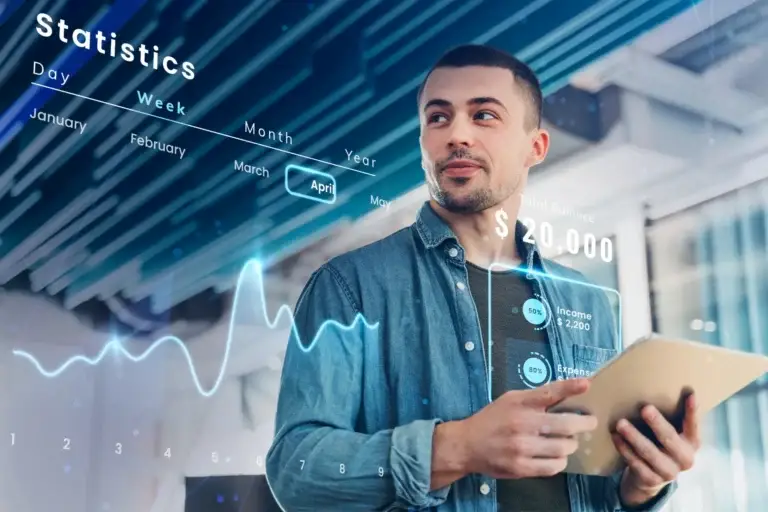
The Impact of AI on Cybersecurity & Data Protection

Introduction
As cyber threats continue to evolve and grow in sophistication, businesses and organizations are increasingly turning to Artificial Intelligence (AI) to strengthen their cybersecurity measures and safeguard sensitive data. AI-powered security systems are becoming integral in detecting, preventing, and responding to cyber threats in real-time, making them an essential tool for modern cybersecurity strategies. In this blog, we explore how AI is transforming the landscape of cybersecurity and data protection, helping organizations stay one step ahead of hackers and ensure the integrity of their information.
1. AI for Threat Detection and Prevention
Traditional cybersecurity systems rely on pre-set rules and signatures to identify threats. However, these systems are often limited in detecting new, unseen threats. AI, powered by machine learning algorithms, can analyze vast amounts of data to identify unusual patterns or anomalies that may indicate a potential threat. By constantly learning from new data, AI can improve its threat detection over time, enabling it to recognize and mitigate even the most sophisticated attacks, such as zero-day exploits and advanced persistent threats (APTs). This proactive threat detection helps businesses avoid data breaches before they can cause harm.
2. AI-Powered Behavioral Analytics
AI in cybersecurity can go beyond traditional rule-based detection and utilize behavioral analytics to identify threats. Instead of focusing solely on known attack signatures, AI can analyze user behavior to spot deviations from normal activity. By creating a baseline of typical actions for each user, AI can recognize when a user or system behaves unusually, such as accessing sensitive data they normally wouldn’t. This behavioral anomaly detection helps identify insider threats and potential compromises in real-time, even if they don’t match known attack patterns.
3. Automated Incident Response and Mitigation
When a cyberattack is detected, response time is critical. AI can automate many aspects of incident response, allowing businesses to react to security breaches faster and more effectively. Automated security protocols, powered by AI, can immediately neutralize threats, such as isolating compromised systems, blocking malicious IP addresses, or shutting down suspicious accounts. This quick response limits the impact of an attack and reduces the risk of further damage. AI also helps streamline the post-incident investigation, automating the process of forensic analysis to uncover the root cause of the breach.
4. AI for Predictive Cybersecurity
AI’s predictive capabilities allow it to anticipate cyber threats before they happen. By analyzing historical data, trends, and patterns, AI can predict where future attacks are most likely to occur and proactively strengthen defenses in those areas. For example, AI can predict the likelihood of a DDoS attack or spot vulnerabilities in the system before they are exploited. This predictive approach helps businesses implement more effective preventative measures and reduce the risk of successful attacks.
5. AI for Endpoint Security
With the rise of remote work and cloud computing, endpoint security has become a top priority. Endpoints, such as laptops, smartphones, and IoT devices, are often the weakest link in an organization’s security posture. AI can provide real-time protection for endpoints by constantly monitoring for threats and behaviors that are indicative of a cyberattack. For example, AI-powered endpoint detection and response (EDR) solutions can detect malware, ransomware, and other malicious activities on devices, ensuring that threats are caught and neutralized before they can spread across the network.
6. AI for Data Protection and Privacy
AI is also playing a significant role in data protection and privacy by helping businesses comply with regulations like GDPR and CCPA. AI-powered tools can automatically classify and encrypt sensitive data, ensuring that it is properly protected from unauthorized access. Additionally, AI can monitor data access patterns and track who is accessing what data, helping to prevent unauthorized disclosure of personal or sensitive information. With AI’s ability to manage and protect data, organizations can strengthen their compliance efforts and reduce the risk of data breaches.
7. AI-Driven Phishing Detection and Prevention
Phishing attacks are one of the most common ways cybercriminals gain access to sensitive information. Traditional email security tools often fail to detect new phishing techniques. However, AI-driven tools can analyze the context, content, and structure of incoming messages to identify potential phishing attempts. By continuously learning from new phishing trends, AI can more effectively block phishing emails, ensuring that employees and users don’t fall victim to these scams.
8. AI in Identity and Access Management
Managing user identities and controlling access to systems are critical for data protection. AI in identity and access management (IAM) helps ensure that only authorized users can access sensitive data. By using AI-powered biometric authentication, multi-factor authentication (MFA), and behavioral biometrics, businesses can secure user accounts and minimize the risk of unauthorized access. AI can also detect suspicious login attempts and trigger alerts or automatic re-authentication measures to prevent data breaches.
Conclusion
AI is reshaping the cybersecurity landscape by providing businesses with advanced tools to detect, prevent, and respond to cyber threats more effectively than ever before. From predictive analytics and behavioral detection to automated incident response and endpoint security, AI is becoming an essential asset in protecting sensitive data and ensuring the integrity of IT systems. As cyber threats continue to evolve, businesses that incorporate AI into their cybersecurity strategies will be better equipped to stay one step ahead of hackers and protect their valuable data.
💡 Is your business ready to embrace AI-powered cybersecurity? Contact us today to learn how we can help protect your organization with the latest AI-driven security solutions! 🚀


